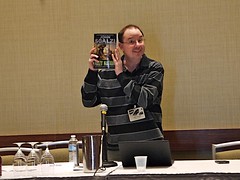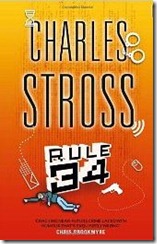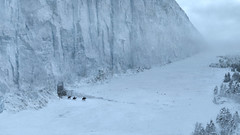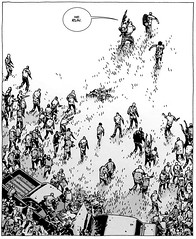
So, like every other Amazon user I’ve been bombarded with ads for Audible for a little while. They’re tedious and overwhelming and I’ve generally ignored them. But since I’ve started listening to audiobooks whilst I run (or at least, using eBook apps like Kindle to read to me), I finally had cause to consider it more seriously. The free month trial sucked me in and I kicked off with Tigerman, the latest book from Nick Harkaway – an author I’ve respected and admired since the Gone Away World blew my mind a few years back.
It was a wonderful experience.
OK, listening to the audiobook whilst running wasn’t quite as relaxing as nodding off to it as I did as a child, but at least I didn’t have to rewind the tapes the next day to find where I’d dropped off so I could pick up the story again. But it’s amazing how you can lose yourself in a story in a way I’ve not been able to with music (not when exercising, anyway) for years. The voice acting by Matt Bates (this guy, I think) added a dimension to the reading I didn’t quite remember from the audiobooks of my youth… an additional pleasure, perhaps one I can appreciate more having grown accustomed to text-to-speech engines reading stuff to me in a robotic monotone (although Microsoft’s Cortana TTS engine is substantially better than Apple’s iPhone one).
It’s reawakened a love of the audiobook and – having planned to cancel the Audible trial, and gotten as far as hitting ‘cancel / due to the cost’ – I’ve found myself being sucked in by a three month at half price offer. We’ll see if I stick with it beyond that, but Mike Carey’s ‘Girl with all the gifts’ is next on my list and – as an added incentive, to make use of my one credit (audiobook) per month, I need to run through it over the weekends. With a run time of 13 hours, that means at least 120km clocked up on the roads in September…!
Also inspired to find the kids some good audiobooks to listen to…!


 I love the way
I love the way 




